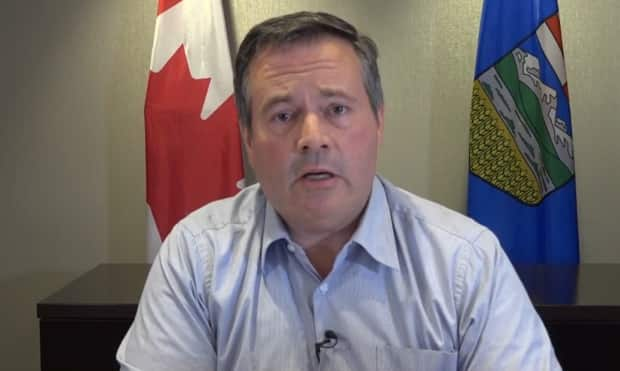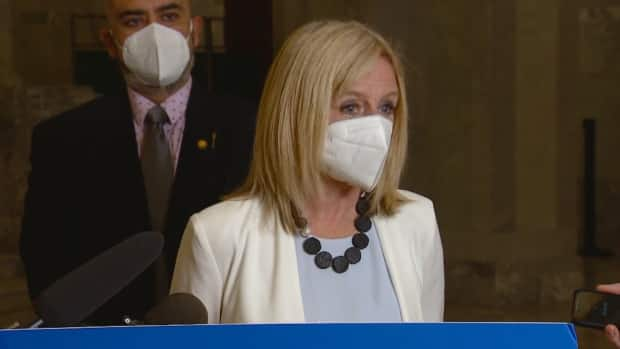Education minister says some controversial curriculum proposals 'aren't even realistic'
Education Minister Adriana LaGrange said some controversial recommendations provided by social studies curriculum advisers might be unrealistic to adopt.
The Alberta government is fending off criticism about leaked elementary school curriculum proposals that propose young children memorize lists of historical dates — sometimes, without context.
"Frankly, some of these recommendations just C, especially at the ages that are suggested," LaGrange said in the legislature on Thursday.
In a follow-up email, her press secretary, Colin Aitchison, said, "some of the proposed memorization for young children might be overly ambitious."
NDP Leader Rachel Notley demanded the United Conservative Party government fire the 17 hand-picked consultants brought in to revise curriculum documents penned under the former NDP government.
The authors of the social studies recommend Grade 1 students will be able to "name three great religions that worship one God: Judaism, Christianity and Islam." They say students should know "the idea that God revealed himself to humans ("revelation") who have the capacity to discover the truth about Him."
"Whether it's blending church and state or forcing children into rigid, outdated memorizing rituals, this government has selected advisers who want to take our education system backwards," Notley said in the legislature.

"At a time when we are allegedly trying to attract investment as a forward-thinking province, why is this government working so hard to undermine the international reputation of our education system?"
LaGrange said the documents are recommendations, not final documents. She said groups of hundreds of teachers and experts will have a chance to review the curriculum drafts later this fall.
The advisers recommend removing lessons on residential schools and the harms of European settlers from K-4 curriculum and saving them for later grades — a recommendation that contrasts with the Truth and Reconciliation calls to action.
LaGrange said those lessons will be taught in elementary school, although she hasn't said at what grade they will start.
Under questioning from the Opposition, LaGrange also said the future curriculum will include Black and Indigenous history and "address concepts, topics and issues related to anti-racism."
Premier defends curriculum adviser
Speaking remotely to a news conference in Calgary, Premier Jason Kenney defended a social studies curriculum adviser who has previously written that teaching Indigenous perspectives in school is a "fad."
Adviser Chris (C.P.) Champion worked for Kenney in Ottawa when he was minister of citizenship, immigration and multiculturalism.
"I know that there are some people who sell themselves as curriculum experts who don't agree and who prefer the approach of the previous government," Kenney said of the academics who have criticized the proposals.
The premier also claimed Thursday that the initial curriculum "framework" document, created under the former NDP government, omitted Canadian history, parliamentary democracy, military history or the rule of law.
In fact, the social studies "scope and sequence" document refers to decisions of past governments, the foundations of legal thinking, democratic structures and processes and constitutional rights.

The proposed K-4 social studies curriculum approved by the former NDP government asked students to study life for different groups of Albertans before the province was formed in 1905. Students were also asked to study how systems of governance had changed over time.
"I can assure you that the final curriculum we develop and approve will be a balanced, thoughtful curriculum, that in social studies informs civic and cultural literacy ... providing young Albertans with the knowledge they need to make their own judgments, particularly on historical matters," Kenney said.
LaGrange has said revised drafts of the curriculum will go before working groups with hundreds of teachers and experts later this fall, then be released for public feedback in early 2021.


